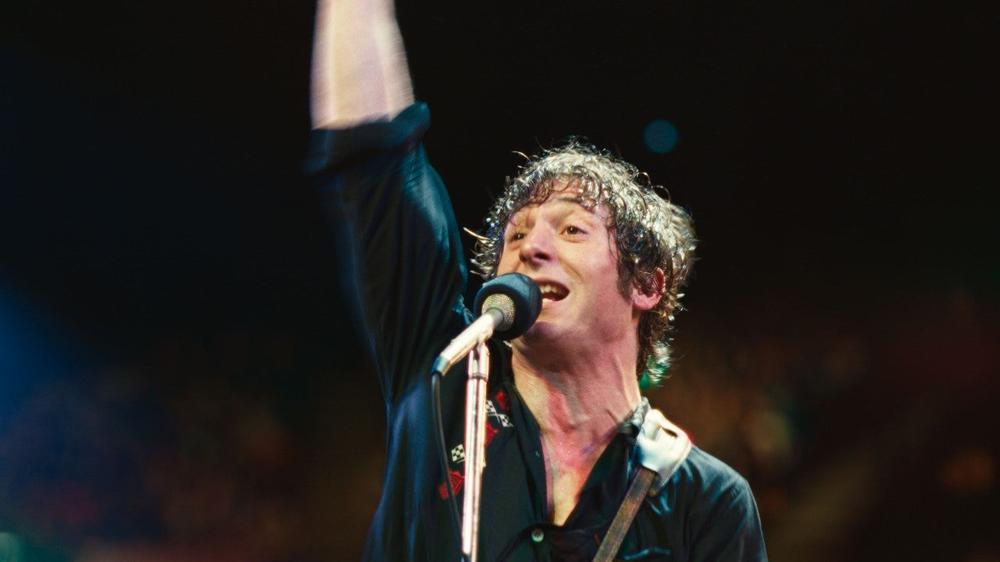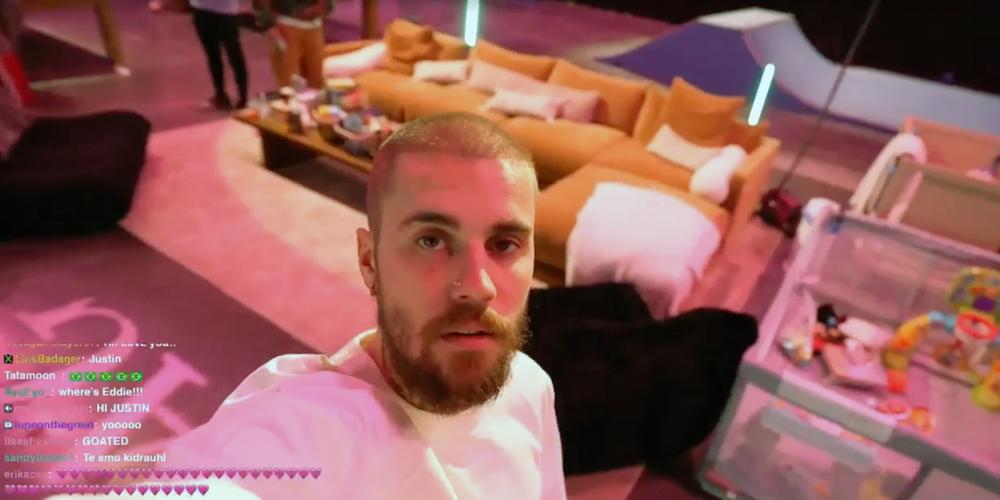Although a big Hollywood music biopic, Springsteen: Deliver Me From Nowhere owes more to intimate 1970s character studies than it does to glitzier films in a genre largely populated by crowd-pleasers that tell a familiar rags to riches tale set to a hit parade of jukebox favorites. This is a throwback, indie-style drama whose protagonist just so happens to be then-burgeoning rock star Bruce Springsteen, but it nevertheless still has some music biopic cliches, a measured pace, and an overall lack of conflict that may limit its appeal to just hardcore fans of The Boss.
As directed by Crazy Heart’s Scott Cooper, Deliver Me From Nowhere only focuses on a very narrow period of Bruce’s life and career - the two years he spent making what would become his most daring (and arguably best) album, 1982’s Nebraska. This limited timeframe is already a blessing in a genre full of bloated cradle-to-grave entries.
Deliver Me From Nowhere is a small, introspective and subdued story about a depressed guy writing sad songs about serial killers and lost souls. Played with brooding soulfulness by Jeremy Allen White, who also impresses with his own singing of Springsteen’s classic tunes, Bruce is trying to figure out what is eating away at him despite achieving mainstream success with his most recent albums, Born to Run and The River.
He is poised to become a big-time rock star (and later America’s working class poet laureate) so the powers that be want him to make his next Top 10 hit, but that’s not what Bruce wants to do. Something is profoundly wrong with him and if he doesn’t purge that darkness through these (less commercially appealing) songs stirring inside him, there’s a very real chance he won’t even be around to ever make another Top 10 hit again.
Deliver Me From Nowhere is the anti-Elvis, the Baz Luhrmann maximalist epic about Springsteen’s boyhood musical hero that covered all the major beats of the King’s life, but rarely slowed down long enough to let the audience just sit with Elvis and truly get to know him. Deliver Me From Nowhere, on the other hand, is a lot of literally just sitting around with Bruce.
We see him writing the songs that will make up the album Nebraska (and the ones that ultimately were cut and later used as his global bestseller Born in the USA). An adaptation of Warren Zanes’ book, the film lovingly documents the (by modern standards) lo-fi approach Springsteen embraced to record these songs, even if Bruce and his guitar tech, Mike Batlan (Paul Walter Hauser), were just trying to make a demo on a cassette and not an actual album.
It wasn’t until he was in the studio trying in vain to recreate those recordings with the E Street Band that Bruce made the risky career move of simply releasing the recorded demo, imperfections and all, much to the concern of his record label (personified by David Krumholtz’s exasperated exec).
The slow-moving first hour of the film comes perilously close to rock biopic cliche territory as Bruce finds inspiration for some of the album’s key songs, such as the title track Nebraska (which was inspired by the Terrence Malick movie Badlands, itself a fictionalized take on the Charles Starkweather killings of the 1950s). But the second half of the movie is the stronger part, where Bruce’s anxieties and crippling depression mount as he struggles with the album that’s in his head, but which he can’t seem to capture in the studio.
This is all unfolding as his unresolved issues with his alcoholic, abusive and mentally ill father Douglas (Adolescence’s Stephen Graham) also come to a head, and his romance with hometown girl Faye (Odessa Young) is threatened by his depression and emotional withdrawal.
As great as he is at recreating Bruce’s onstage and studio performances, it’s in these quieter, lonesome moments that Jeremy Allen White shines most, conveying a deep internal life through just his posture and a meaningful look in his (brown contact lens) eyes. That said, dramatizing the act of writing and the curse that is depression is very difficult to pull off (or to at least make cinematically compelling) since both involve isolation and internal thoughts an audience isn’t privy to.
That’s where the screenplay, which Cooper also wrote, strains to make sure there isn’t any uncertainty about what’s driving Bruce by having his producer-manager Jon Landau (an understated, empathetic Jeremy Strong, in a rare good guy role) articulate it to others, such as his wife (Grace Gummer in a thankless, largely dialogue-free role). These sequences are all pretty clunky and on the nose.
The black and white flashbacks to Bruce’s blue collar youth in Freehold, New Jersey, more than suffice in explaining with imagery, rather than words, what the root causes of Bruce’s demons are. Now, it’s important to emphasize that back in the early ‘80s, when Nebraska was being made, anxiety and depression were still largely taboo subjects for most people (famous or otherwise) to recognize and deal with. So Bruce himself and those around him just don’t get what’s happening with him.
The film’s exploration of depression, and of ultimately finding light within the darkness, makes Springsteen: Deliver Me From Nowhere a rarity in the music biopic genre. This isn’t about a rock star who lives fast and dies young due to excess and the trappings of fame. This is a hopeful story about a flawed, vulnerable human being who finally confronts their pain and survives to see better days and greater success.
While the work of the two Jeremys has dominated the film’s promotional cycle — the brothers-in-arms bond between Bruce and Jon offers a healthy and compassionate counter to, say, the toxic and destructive bond between Baz’s Elvis Presley and his manager, Colonel Parker — more kudos needs to be given to the always reliable and compelling Stephen Graham, who brings Bruce’s deeply troubled dad to life with few words and the threat of violence always simmering underneath the surface. The film ultimately finds humanity in Douglas, offering him the sort of redemption many of the characters in Bruce’s own songs desperately yearn for.
Unfortunately, like Grace Gummer’s aforementioned thankless wife character, there are a few other characters who chew up screen time but whose names you’d be forgiven for not remembering. Like, say, Bruce’s pal who works on motorcycles and later drives him to California. Who is he exactly? Then there’s mustache-less Marc Maron, who does a few big scenes as the Nebraska studio producer, Chuck Plotkin, without ever saying a line of dialogue. Why hire a guy of Maron’s stature just to have him be a background player?
Odessa Young shines in her limited screen time as Faye Romano, a waitress, single mom and the sister of one of Bruce’s high school classmates. But Faye is a composite character of a few different women Bruce was seeing at that time, so once you know that she’s not real, her scenes lose something intangible yet keenly important. Maybe it’s because the film takes such pains to be seen as authentic, from its New Jersey locations to the classic recording equipment to the involvement of Springsteen himself (who was often on set and has been heavily promoting the film alongside Cooper and the cast), that finding out one of the film’s most integral relationships is fictional just feels off-putting.

 “We’ve officially entered a new timeline”: Justin Bieber launches Twitch channel with promise to “stream every day”
“We’ve officially entered a new timeline”: Justin Bieber launches Twitch channel with promise to “stream every day”